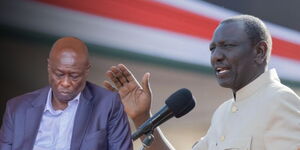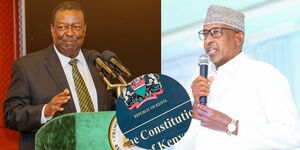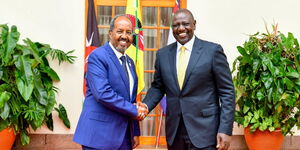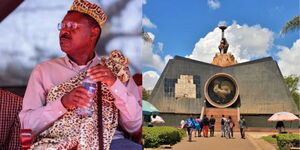Kenya has dropped one place to 115 in the latest World Happiness Ranking. This is as per the latest World Happiness Report that saw Kenya drop from 114th to 115th out of 147 countries in the world ranking.
However, in Africa, Kenya improved one place up to 18th in 2024 from 19th in 2023. In the East African region, Kenya retained the top spot as the happiest country in the region.
In Africa, Kenya came ahead of countries like Egypt, Uganda, Tanzania, Gambia, Ethiopia, and Botswana. However, they still lagged compared to their fellow counterparts like Nigeria, Libya, Gabon, Tunisia, Morocco, and South Africa.
As per the rankings, Mauritius was named the happiest country in Africa, followed by Libya, Algeria, South Africa, and Mozambique.
Notably, the ranking revealed deeper insights, with war-torn countries like Ukraine and the State of Palestine ranking higher than Kenya concerning happiness. The two ranked at positions 111 and 108, respectively.
Also, other countries such as Iraq and Iran, which have had a history of political instability, were ahead of Kenya, coming in at 101st and 99th position, respectively. On the flipside, however, Kenya came ahead of countries such as India and Jordan.
The rankings that were released yesterday are based on self-reported life evaluations and other well-being indicators collected from the Gallup World Poll and other sources.
The rankings are based on responses to the Cantril Ladder question, where people rate their current life from 0 (worst possible life) to 10 (best possible life). It incorporates six key factors to explain variations in happiness across countries.
The World Happiness Report 2025 considers six key metrics: GDP per capita, where higher income correlates with greater life satisfaction; healthy life expectancy, based on WHO data; and freedom to make life choices, measuring personal autonomy. Though Kenya’s GDP per capita ranking isn’t specified, its low overall ranking suggests economic struggles affect well-being.
Other metrics include generosity (charitable donations), perceived graft (public trust in institutions), and social support (having people to rely on). Kenya ranks 4th worst in graft, reflecting deep distrust in government and business.
Beyond these, the report assesses benevolence indicators (helping strangers, volunteering, expected wallet return), emotions (happiness, sadness, worry), and social trust (belief in fairness). Kenya ranks 24th globally for helping strangers and is among the top for volunteering but scores lower on charity donations. The report links Kenya’s strong informal aid networks to weaker institutional structures.
Kenya's happiness ranking reflects a mix of economic struggles, social generosity, and institutional distrust. While high levels of informal benevolence—such as helping strangers and volunteering—highlight strong community support, economic hardship and graft remain major barriers to overall well-being. The report suggests that strengthening institutional trust and economic stability, while leveraging Kenya’s culture of generosity could improve national happiness in the long run.












